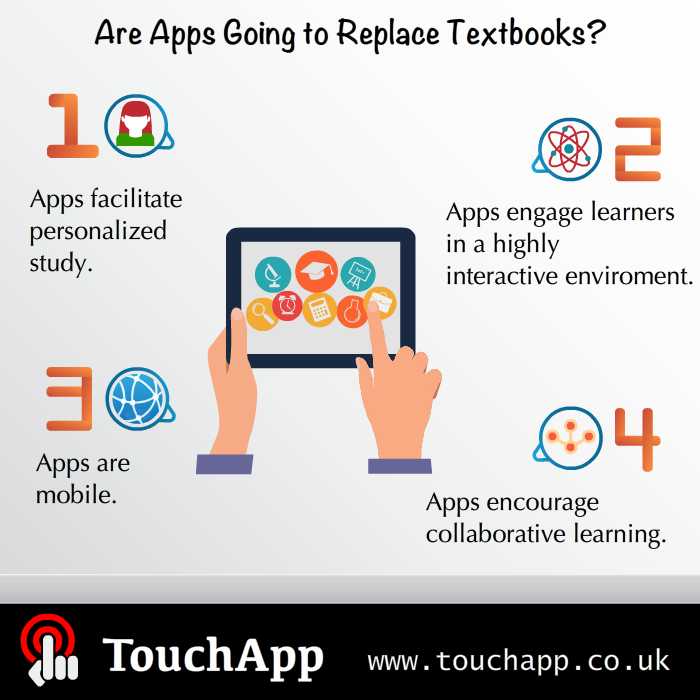Printed textbooks have long been used as the centre of education, but as the aeon of paper books has transpired, traditional textbooks face great challenges to serve as the main mode of deliverance of education. It is a common perception now that digital technology holds great potential to improve institutional learning. In just a few yeas, tablets become popular in the classroom and are gradually changing the landscape of education. Educational Apps emerge as the main format to aid teaching and learning. Apps can easily contain all the information a textbook can, but with additional ability to enrich users’ learning experience.
1. Apps facilitate personalized study.
Unlike rigid textbook that offers the same content, educational Apps provides more accessible and personal for learners, allowing students to progress towards common standards but through different routes, employing different pathways of learning and assessment. Even with the same subject, Apps allow students to study in different ways, at different paces and styles according to their differentiated need. Apps also can help students with special learning needs, such as facilitating vocabulary acquisition of learners with language barriers or offering personalized instructions to students facing bewildering social situations.
 2. Apps engage learners in a highly interactive environment.
2. Apps engage learners in a highly interactive environment.
Pilot program with iPad in schools reveals changing the format of the content can improve students’ attentiveness in the classroom. When the worn textbooks been replaced with educational Apps containing built-in videos, animations and quizzes, students immediately showed more energy in them and were “more motivated, attentive, and engaged”. It is also possible to gamify the process of learning through Apps, taking advantage of humans’ psychological predisposition, game-based learning can make education more interesting, intriguing and relevant to modern kids.
3. Apps are mobile.
Apps, running on portable electronic devices such as smartphones and tablets, can easily be accessed without any constraints of a particular place or without any limitation to boundary. Apps can easily integrate technology features such as GPS, camera, accelerometer etc. to help students connect practical learning together with theoretical experiences. Learning no longer restricts to the classrooms, learners be able to gain control of their own learning and choose whenever and wherever they learn.
4. Apps encourage collaborative learning.
With the ability to connect to the Internet, Apps provide ways of facilitating teaching and learning collaborations. Social Apps such as Twitter, Facebook and Pinterest etc. have become a part of modern students’ daily lives and can also be used as network platforms for learning purposes. App technology can connect people worldwide upon common interests; it is possible for students sitting in America and China to work on the same project and subsequently develop knowledge and skills through these connections.
Future
Since the traditional textbooks no longer fulfil modern students’ needs, the industry is obligated for a revolutionary. Tablet is here and it indicates the forthcoming probability. Educational App can easily integrate diversified learning materials and pathways, seamlessly link school learning and personal development, it should play a key role in developing comprehensive solutions for future education.
Follow us on Twitter: @TouchApp_uk
From Mobile App development company TouchApp
![]()